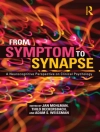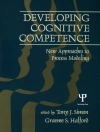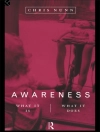Grounded in current knowledge about bipolar disorder and its treatment, this book presents an empirically supported therapy program with step-by-step guidelines for implementation. Mindfulness-based cognitive therapy (MBCT) for bipolar disorder is specifically designed for clients who have experienced many mood episodes and who struggle with chronic, pervasive depressive and residual manic symptoms. The authors provide everything needed to conduct the 12 weekly group sessions, which are supplemented by regular individual sessions. Reproducible tools include 29 client handouts and an Instructor Checklist. Purchasers get access to a companion website featuring downloadable audio recordings of the guided mindfulness practices (meditations and mindful movement), plus the reproducible materials, ready to download and print in a convenient 8 1/2′ x 11′ size. A separate website for use by clients features the audio recordings only.
Tabela de Conteúdo
I. An Introduction to MBCT for Bipolar Disorder
1. Bipolar Disorder and Mindfulness
2. An Overview of MBCT for Bipolar Disorder
3. Assessment and Orientation for Prospective Participants
4. Individual Sessions
II. The Group Sessions
Session 1. Welcome in the Moment
Session 2. Welcome Back to the Present
Session 3. The End of the Honeymoon
Session 4. Aversion and Attachment
Session 5. Depression and Acceptance
Session 6. Mania
Session 7. Anger
Session 8. Anxiety
Session 9. Open Awareness and Loving-Kindness
Session 10. Loving-Kindness I
Session 11. Loving-Kindness II
Session 12. Mindfulness Never Ends
III. Reproducible Handouts
Handout 1. Misconceptions about Mindfulness
Handout 2. MBCT for Bipolar Disorder: The Roadmap
Handout 3. Mindfulness Discussion Questions
Handout 4. Yoga Exercise
Handout 5. Mood Diary
Handout 6. Planning Your Mindfulness Practice
Handout 7. Homework Sheet
Handout 8. Worksheet for Warning Signs and Action Plans
Handout 9. Worksheet for Trigger Situations
Handout 10. The Autopilot
Handout 11. Exercise 1 for Session 5
Handout 12. Automatic Negative Thoughts
Handout 13. Cognitive Biases in Depression
Handout 14. Exercise 2 for Session 5
Handout 15. What Can I Do When I Start Feeling Down or Depressed?
Handout 16. List of Troubling Thoughts and Feelings
Handout 17. Why Prevent Mania with Mindfulness?
Handout 18. Thoughts, Feelings, and Behaviors Associated with Hypomania/Mania
Handout 19. Cognitive Biases in Hypomania/Mania
Handout 20. What Should I Do When I Notice Warning Signs of Mania?
Handout 21. Automatic Anger Thoughts
Handout 22. Anger-Related Cognitive Biases
Handout 23. Exercise for Session 7
Handout 24. Anger Discussion Questions
Handout 25. What Can I Do When I Feel Frustrated, Angry, or Irritable?
Handout 26. Automatic Catastrophic Thoughts
Handout 27. What Can I Do When I Feel Anxious?
Handout 28. Self-Soothing Activities
Handout 29. Mindfulness Never Ends
References
Index
List of Audio Tracks
1. Yoga-Body Scan (23:13)
2. Introduction to the Breathing Space (2:01)
3. Body Scan (17:46)
4. Mindfulness of the Breath (8:15)
5. 3-Minute Breathing Space (3:23)
6. Mindfulness of the Breath and Body (9:48)
7. Mindful Sitting with Sounds and Thoughts (9:37)
8. 3-Minute Breathing Space with Acceptance (3:55)
9. Emotion-Focused Meditation (10:15)
10. Open Awareness Meditation (10:29)
11. Loving-Kindness Meditation (12:48)
Sobre o autor
Thilo Deckersbach, Ph D, is Associate Professor of Psychology at Harvard Medical School. He serves as Director of Psychology in the Bipolar Clinic and Research Program and Director of Research in the Division of Neurotherapeutics at the Massachusetts General Hospital in Boston. He has published over 95 peer-reviewed papers and book chapters. His clinical research concentrates on the development of cognitive-behavioral and mindfulness-based treatments for bipolar disorder; his functional neuroimaging research focuses on the interaction of cognitive and emotional processes in bipolar disorder. Dr. Deckersbach has been a dedicated meditation practitioner since 2008.
Britta Hölzel, Ph D, is a Research Fellow at the Institute for Medical Psychology at Charité in Berlin, Germany. She was previously a Research Fellow in the Psychiatric Neuroscience Division at the Massachusetts General Hospital and Harvard Medical School. Dr. Hölzel is a mindfulness-based stress reduction instructor and a certified yoga teacher (Sivananda Organization), and has been a dedicated yoga and meditation practitioner since 1997. Dr. Hölzel is a recipient of the Marie Curie International Outgoing Fellowship within the 7th European Community Framework Program, and the Positive Neuroscience award from the John Templeton Foundation, among other honors. Her magnetic resonance imaging research focuses on the effects of mindfulness practice on the functional neuroanatomy of emotion regulation as well as on structural changes in the brain.
Lori Eisner, Ph D is Assistant in Psychology at the Massachusetts General Hospital’s Bipolar Clinic and Research Program and an instructor at Harvard Medical School. Her work has been funded by the Harvard Medical School Kaplan Fellowship and the Clinical Research and Training Program. Her research has focused on the development and implementation of treatments to improve emotion regulation in people with bipolar disorder. She has examined the feasibility of a group treatment for emotion regulation that teaches mindfulness, emotion regulation, and distress tolerance skills adapted from dialectical behavior therapy. Dr. Eisner has coauthored four book chapters and has published in numerous peer-reviewed journals. She has been an avid yoga practitioner since 2003.
Sara W. Lazar, Ph D, is Associate Researcher in the Psychiatry Department at Massachusetts General Hospital and Assistant Professor in Psychology at Harvard Medical School. She is a board member of the Institute for Meditation and Psychotherapy. The focus of Dr. Lazar’s research–which has been covered by numerous news outlets–is to elucidate the neural mechanisms underlying the beneficial effects of yoga and meditation, both in clinical settings and in healthy individuals. She has been practicing yoga and mindfulness meditation since 1994.
Andrew A. Nierenberg, MD, is Professor of Psychiatry at Harvard Medical School, Director of the Bipolar Clinic and Research Program, and Associate Director of the Depression Clinical and Research Program at the Massachusetts General Hospital. He has been listed among the Best Doctors in North America for the treatment of mood and anxiety disorders since 1994, received the National Depression and Manic Depressive Association Gerald L. Klerman Young Investigator Award, and was elected as a member of the American College of Neuropsychopharmacology. Dr. Nierenberg’s research focuses on comparative effectiveness of existing treatments and the development of new treatments for mood disorders. He has published over 350 papers and 30 chapters and reviews and is a member of the editorial boards of over 15 journals.












